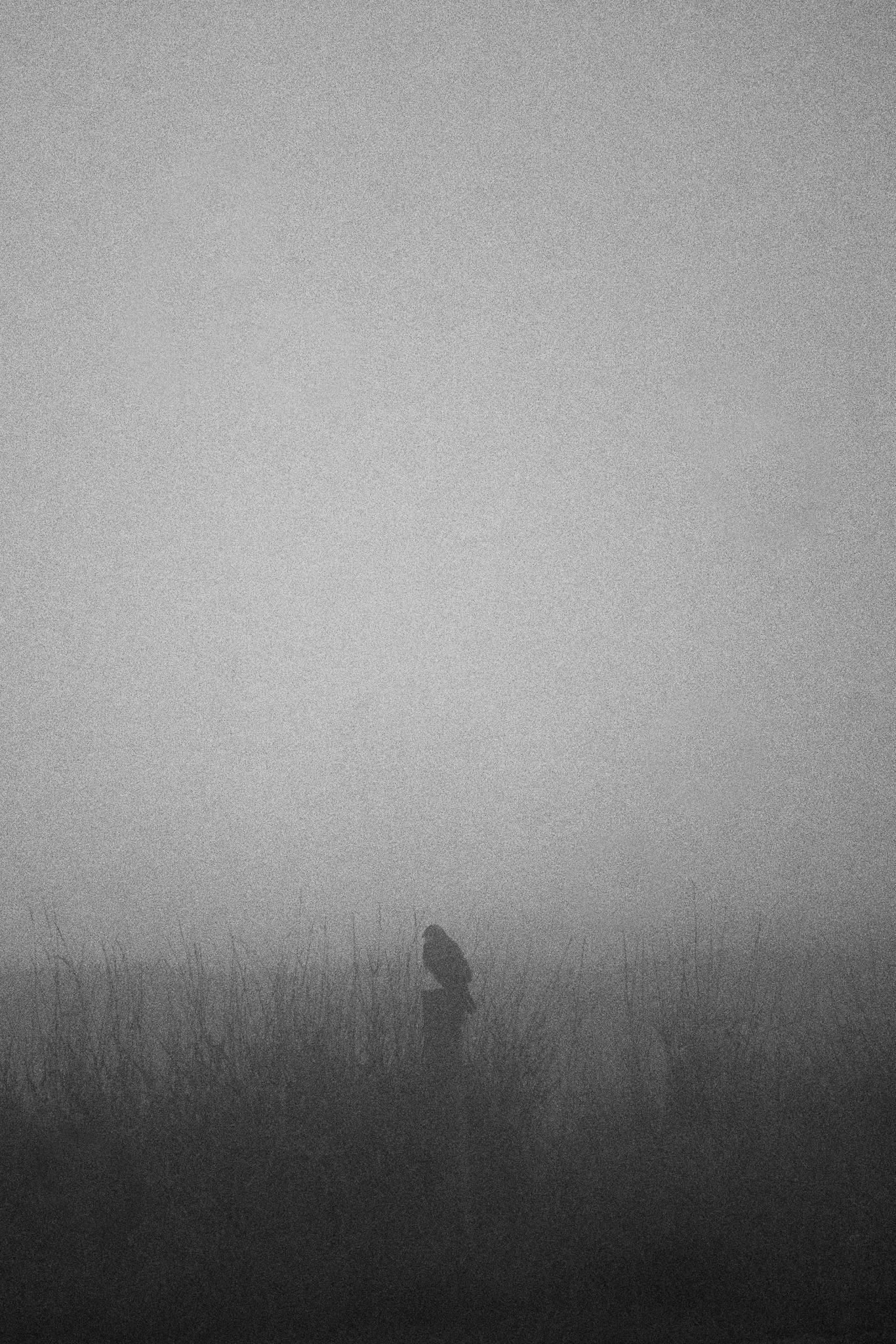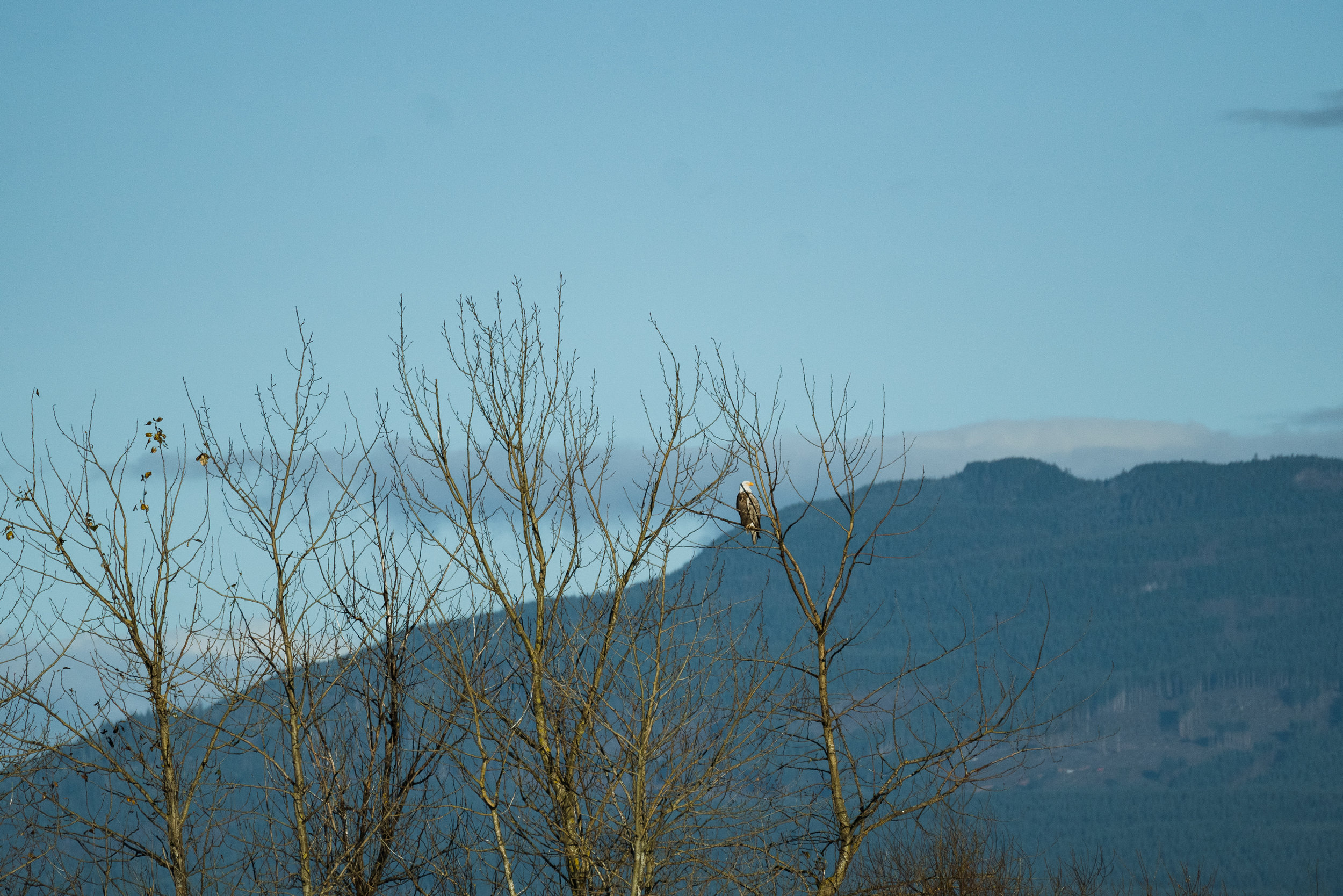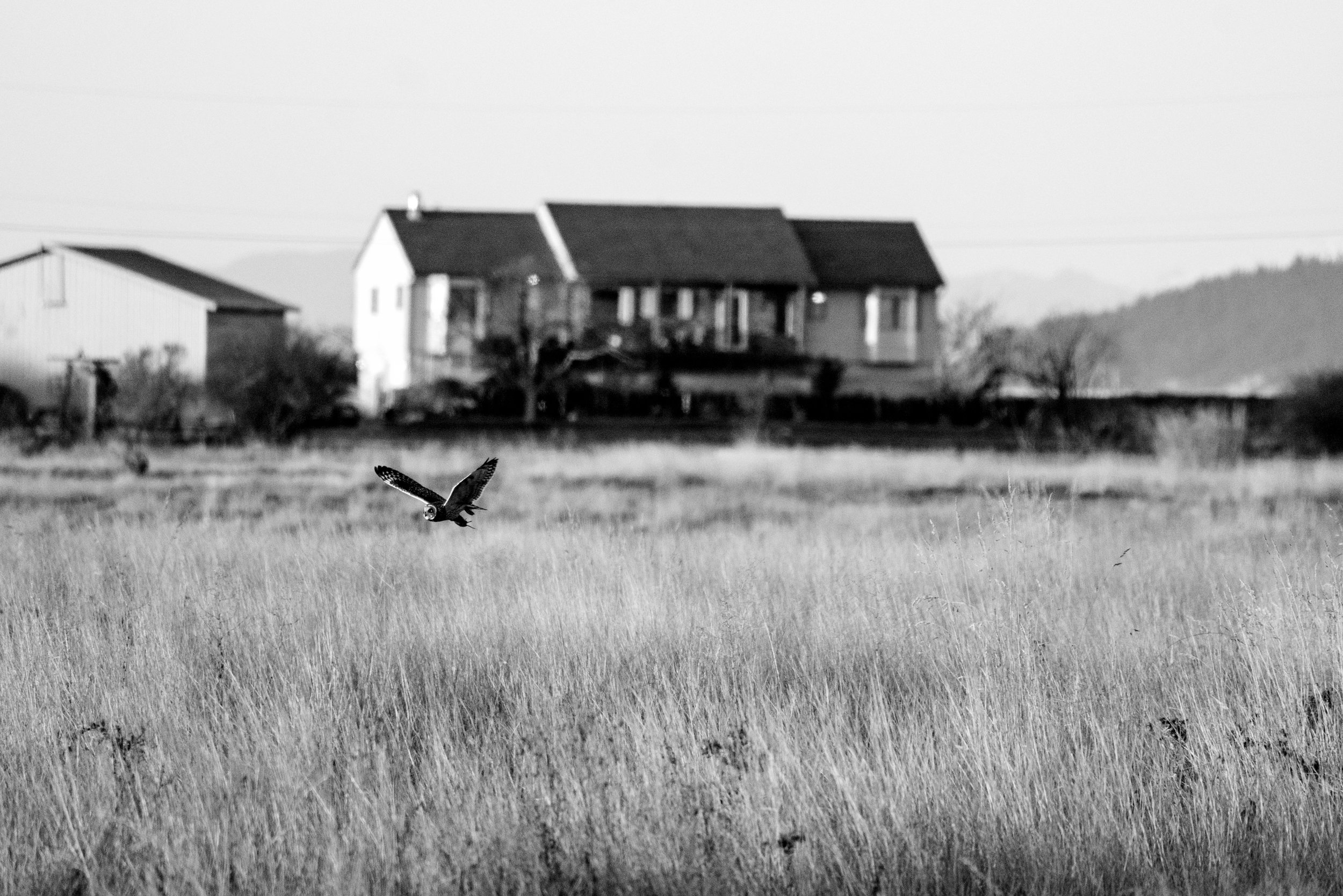Our Urban Wilderness - A Day On The Samish Flats
Admittedly, this is the least “urban” post in the Our Urban Wilderness project so far, but it’s still only an hour away from Seattle and there are plenty of cities around, so I’m counting it. :)
I woke up on this particular morning at 5am and couldn’t go back to sleep, which has been a little bit of a theme lately. After checking the weather to see which direction looked the best I decided to drive north a little bit to see what I could find and lucked out with a magical, foggy morning that turned into hours of hiking with wildlife that eventually ended with a perfect sunset over Mount Baker.
The fog around Western Washington has been so surreal lately, and mixed with this particular sunrise it was extra moody, especially as these Eagles, Hawks and Harrier would suddenly appear right in front of me, out of the fog.
As the sun got a little higher in the sky and the morning golden hour passed the light turned white again, but the fog stuck around.
The fog cleared and made way for completely blue, sunny skies. My hands warmed up enough that I was able to ditch my gloves and the birds really started swooping around, ready for breakfast.
I saw this Northern Harrier (below) chase off a huge Rough-Legged Hawk, so I figured there had to have been some kind of food involved. I got over there as quickly as I could and found it feasting on a Mallard.
It was so distracted that I was able to get pretty close without it getting too concerned. It’s so fascinating to see big birds of prey up close.
The sun was starting to go down pretty quickly (by 3 o’clock!) and I wanted to get to one more place, so I was hustling back to the car when this Bald Eagle caught my eye. At first I just thought that the light was reflecting off of the wings in a strange way, but I took some photos to get a closer look and suspected that it might be partially leucistic, so I tried to walk a little closer to get a better view.
It looks like I was right! Leucism is a genetic condition resulting in a partial loss of pigment in an animal, resulting in white, pale or patchy coloration. I’ve seen thousands of Bald Eagles in my life, but it was pretty fascinating to see one that looked like it had a juvenile body and a completely white adult head. I wanted to stay longer, but figured that this guy probably gets stalked enough by people, so I decided to keep going.
I wanted to make a quick pre-sunset stop at a place that I had heard had Short-Eared Owls that hunt right at sunset. I got there and they were already flying all over the place, putting on quite a show.
I had actually never seen these kinds of owls before and it was fascinating to watch them flying so quickly. They’re like little acrobats and are so stunning looking.
I watched the owls for a little while longer and then decided to make my way back home. On the way I had to pull over, though, because Mount Baker was putting on quite a sunset show and I couldn’t resist one more photo.
If you fell in love with any of these images and want to keep them in your life, head on over to the shop for prints/fun household products/gifts. (If you’re interested in an image that isn’t up there yet, or if you can’t find one, just leave a comment below or shoot me a message!)
These images are also available to be licensed for commercial and editorial projects on Cavan or in my archive.
About the Our Urban Wilderness project:
Inevitably, every time I post an image on instagram + facebook of the wildlife I find on these walks, someone will say something along the lines of "where did you find that?!" or "I wish I lived closer to 'XYZ' so I could see something that cool!" and I always have to laugh because 90% of the time I was just on a quick walk in the middle of the city and stumbled upon some crazy creature. I'm guilty of it, too, though. If I see a photo of a walrus or a narwhal I want to hop a plane to the arctic immediately, if not sooner. I know, though, that there are a million cool creatures within a few miles of us all right this second and all we really have to do to see them is slow down, open our eyes and be patient. This year alone I know I've seen dozens + dozens of animals that I've never seen before.
The second reason I wanted to do this project is because there seems to be this mental box that we put on wildlife where we think that humans exist in "THE CITY" and wildlife exists in "THE WILD", as if we all live in a zoo together and there are barriers between our habitats. (All you have to do is live in an area where bears or coyotes have wandered into residential neighborhoods to realize how strongly people believe this.) The fact, though, is that we're all coexisting and our paths cross far more often than we all realize. I think this can happen, peacefully, if we're all just a little more aware and if we don't turn into alarmists every time we see something that we're sure belongs in "THE WILD".

































